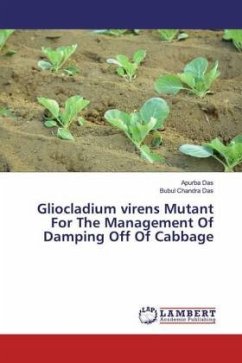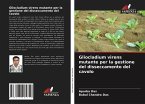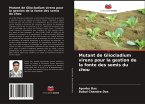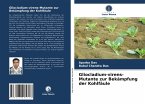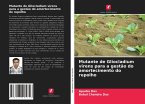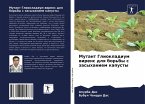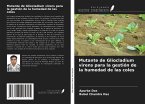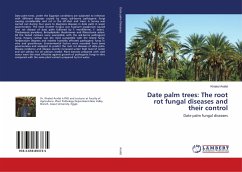The antagonistic fungal isolates have been found to be effective for the management of damping-off of vegetables and other crops. However, most of them are very much sensitive to carbendazim which is often used as a seed-dressing fungicide to eliminate the seed-borne as well as soil borne fungal pathogens. The aim of the present investigation was to develop UV-irradiated carbendazim tolerant mutants of Gliocladium virens (Synm: Trichoderma virens). Three stable mutants of a bio-control agent, G. virens (GvM1, GvM2 and GvM3) have been generated by exposing to UV radiation at 260 nm for different time periods (viz., 60, 80 and 100 minutes). The mutants differed from the wild type strain in phenotype, growth rate, sporulation, antagonistic potential and fungicide tolerance. The new biotype possessed tolerance to carbendazim upto 50 ppm, while the wild type fails to grow even at 10 ppm concentration. Further, molecular characterization of the wild and mutant of G. virens confirmed the genetic difference among the isolates. The phylogenetic analysis of the wild and mutant of G. virens revealed that the mutant types were more similar with Trichoderma harzianum isolates of other region.
Bitte wählen Sie Ihr Anliegen aus.
Rechnungen
Retourenschein anfordern
Bestellstatus
Storno

